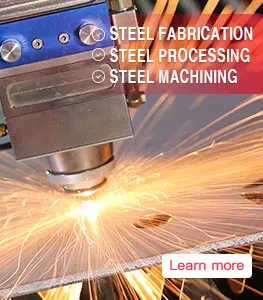Welcome to BBN Steel Materials Factory
DIN 34CrMo4 alloy round bar with high-strength

DIN 34CrMo4 alloy round bar is a high-strength, heat-treatable steel with good toughness and excellent fatigue strength that is widely used in the manufacturing of heavy-duty machinery and construction equipment. DIN 34CrMo4 alloy steel round bar is known for its high yield strength, which makes it ideal for use in applications that require a combination of strength and toughness.
Chemical Composition
DIN 34CrMo4 alloy steel round bar contains 0.30% to 0.37% carbon, 0.50% to 0.80% manganese, 0.15% to 0.25% silicon, 0.90% to 1.20% chromium, 0.15% to 0.30% molybdenum, and less than 0.035% sulfur and phosphorous. The high chromium content in this steel provides excellent corrosion resistance and wear resistance, while the molybdenum content enhances its strength and toughness.
Mechanical Properties
DIN 34CrMo4 alloy round bar has excellent mechanical properties that enable it to withstand heavy loads and stresses. This steel has a tensile strength of 980 MPa and a yield strength of 835 MPa. It also has a high modulus of elasticity and a good fatigue limit, making it ideal for use in applications that require high strength and durability.
Applications
DIN 34CrMo4 alloy round bar is widely used in the manufacturing of heavy-duty machinery, construction equipment, and industrial components. It is particularly suitable for use in the production of drill rods, hydraulic cylinders, crankshafts, gears, and axles. Its high strength and toughness make it ideal for use in applications that require a combination of strength, toughness, and wear resistance.
Potential Drawbacks
While DIN 34CrMo4 alloy round bar has many advantages, there are also some potential drawbacks to consider. One of the main limitations of this steel is its susceptibility to stress corrosion cracking (SCC). SCC can occur as a result of exposure to corrosive environments over an extended period, leading to cracking and failure of the steel. This susceptibility means that extra precautions need to be taken to prevent SCC in applications that involve prolonged exposure to corrosive environments.
.webp)
.webp)
.webp)
.webp)
.webp)
.webp)
.webp)
.webp)
.webp)



Leave a Message